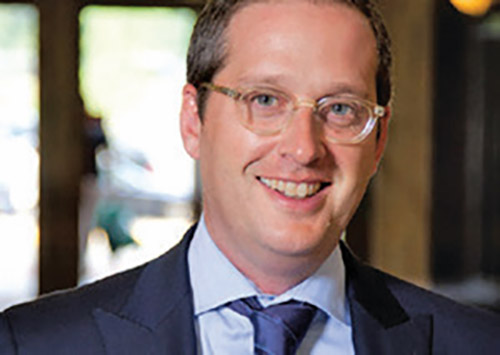
For as long as parents and teachers have been educating children there has existed a tension between two complementary but also at times competing values. On the one hand, education is an investment in a profession. By that standard, a successful educational outcome is judged by whether a pupil is adequately prepared to enter the working world and find gainful employment. Equally critical to a successful educational outcome is the socialization of our children into honest, kind, empathetic and socially productive citizens. Ideally, our children will emerge from 15 years of Jewish education as both socially and economically productive members of society. Without a vocation, our children cannot make a living. Without a Jewish values-infused socialization, our children cannot live a meaningful Jewish life.
Recently, I read an email from one of the local yeshivot trumpeting a new community-wide STEM initiative that is being integrated into the school curriculums across our community. STEM is shorthand for Science, Technology, Engineering and Math, and the acronym incorporates the skills and expertise that our children may need to compete for future jobs. It is indisputable that automation, as driven by artificial intelligence and machine-learning technologies, is transforming the workplace, and as a result, professionals, even white-collar ones, who in the past provided stable incomes are being replaced by robots and other man-made inventions.
We now live in what economists call the knowledge economy, a system that rewards highly skilled workers who can perform highly specialized tasks and devalues traditional labor in the form of lower wages and/or elimination of jobs. Understandably, our community needs to be cognizant of this economic sea change and make sure that our children are prepared for the economy of the future.
There is, however, another societal change threatening our children’s future that must be addressed in the classroom but that cannot be solved by an enhanced STEM curriculum alone. Our children are growing up in a world that by Jewish standards is becoming dystopian. By that I mean the world is increasingly succumbing to the ugliness of tribalism and shrinking the arc of empathy that embraces those who are different and less fortunate. Most troublingly, our elected leaders are walking back previously sacrosanct commitments to the foundational Judeo-Christian values of human dignity and freedom, democracy and human rights.
Rabbi Joseph B. Soloveitchik identified two competing images of man in his seminal work “The Lonely Man of Faith.” The Rav sees in the Biblical account of creation two distinct typologies of man. There is Adam I, who approaches the world as a conqueror, intent on subduing creation with innovation and technology and bending nature to his will. The next chapter in Genesis introduces us to Adam II, who sees the beauty in creation as a reflection of God, and rather than transforming it on his own terms is willing to surrender to the will of God.
“It is not good for man to be alone,” declaims the second creation account, and as such Adam II, as a social animal, is hardwired to build human relationships.
Without meaningful human-to-human connections, Adam II will be lost and in despair. Genuine relationships, however, can only be built with love, altruism, empathy and kindness. One can only have a relationship with “the other” if there is a recognition that we are all created in the image of God and as such deserve respect, dignity and freedom.
Adam I must have a superior STEM education to fulfill his destiny. Adam II needs a Jewish humanities education that will ennoble and empower him to carry the banner of Jewish values into a world that is becoming darker and less kind by the day.
Our kids deserve a world-class STEM education but it must not come at the expense of a Jewish humanities curriculum that is measured in deeds, not dollars. A Jewish humanities curriculum must include sufficient exposure to the arts and literature that train us to see the humanity in everyone; to world and Jewish history that opens our eyes to how far our morality has developed but also how much farther we have to go; and to Tanach and Jewish philosophy that articulates a uniquely Jewish prophetic vision of a world that is guided by charity, kindness and a redemptive mandate.
I am confident that our schools will produce tomorrow’s elite engineers who continue to push the frontiers of science and technology. But in a world in which much of the innovation yields Adam I technologies that are at their core dehumanizing, it becomes that much more incumbent upon us to develop our children into adults who will never lose sight of Adam II’s promise of a world that recognizes the image of God in all of humanity.
A Bergenfield resident, Keith Zakheim is the CEO of Antenna Group and serves as a strategic adviser to political leaders, both domestically and internationally.










